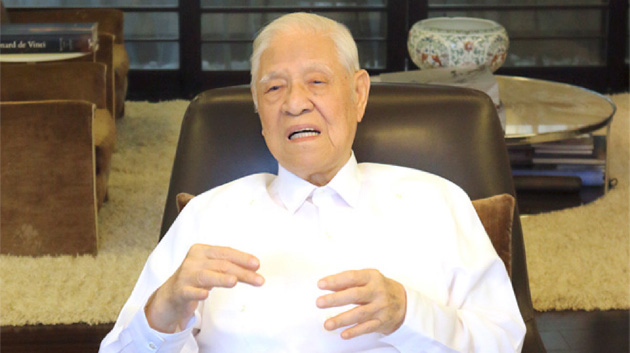Former President of Taiwan Lee Teng-hui’s Message to Japan
"Japan, Protect Your Country!"
As North Korean missiles terrorize Asia, Japan has abandoned its role as a leading Asian country to begin an extraordinary election after dissolving the Diet.
Among the many people wary of Japan’s future is Lee Teng-hui, the former president of Taiwan. Lee, who celebrated his 94th birthday this year, served as president for 12 years from 1988 to 2000 and contributed significantly to the democratization of Taiwan. After his presidency he has continued to reinforce friendly relations with Japan despite pressure from China.
On the 26th of September, Happy Science interviewed Lee for 90 minutes at his Taipei home. He spoke about various issues related to the leadership abilities that politicians need to have and the North Korea problem.
Protect Your Country Yourselves: That’s What the Constitutional Amendment Should Be for
“We have to do something about him [Kim Jong-un],” said Lee. “He’s a danger to Asia region.” Lee emphasized the need to come up with a solution quickly.
Kim Jong-un’s announcement that he will launch a missile attack on Guam, “was meant as a threat toward Japan,” Lee said. It was a psychological strategy designed to wreak confusion in Japan and fracture the U.S.-Japan alliance.
“With regard to North Korea, Japan is heavily influenced by America, but America is not quite clear on their stance. South Korean president Moon Jae-in is also ambiguous”. Lee also expressed disappointment about Japan’s diplomatic dependence on other countries. “That’s why Japan must amend Article 9 of the Constitution,” he added. “Protect your country yourselves; that is what the constitutional amendment should be for.”
Japanese Politicians Must Wake Up
Lee also commented on the U.S.-Japan relationship, saying, “Japan must stop just relying on the U.S., but must also become indispensable to them.” He expressed his hope that Japan would come to show political prowess. Being the owner of the most powerful military in the world, the U.S. may seem undefeatable, but ever since the stock market crash of 2008 the U.S. economy has shown signs of decline. The Japanese economy, however, has the potential to support the U.S. Lee’s remarks are a wake-up call for Japanese politics.
Lee also commented on Japan’s economic policy. “I have been telling Prime Minister Abe that a 1.5% GDP growth is not enough,” he said. “Japan must aim for at least 4% annual GDP growth”.
Lee recently proposed the need to add a “growth strategy” to the Abenomics Three Arrows economic policy alongside its monetary and fiscal policy.
The Chinese Have Ideas the Japanese Will Never Have
In 1996, while Lee was President of Taiwan, China launched a missile into the Taiwan Strait. Lee reflected on this Third Taiwan Strait Crisis in this way:
“China launched a missile towards us saying it was naval training. The truth is, if we flinch we lose. The Japanese have no idea what the Chinese are like. The Chinese have ideas the Japanese will never have. The Japanese are too honest for their own good.”
Lee was a politician who courageously stood up against China to protect Taiwan. His words are filled with that power, and Japan must pay heed to his wisdom.
“I’m dubious about China having the world’s second largest GDP, ” he added. “It seems implausible seeing the way the Chinese citizens live.”
Faith Is a Leader’s Primary Motivation
When asked about the ideal mindset of a political leader, Lee referred to the lack of direction in Japanese politics. He reflected on the 2011 Democratic Party administration saying, “Right after the Great East Japan Earthquake, I criticized the then Prime Minister Naoto Kan for his lack of leadership. When the people are suffering the leader must feel impelled to alleviate that suffering.”
He also mentioned the duties of a politician, a topic of special significance considering the current critical situation in East Asia. He drew on Tolstoy’s “War and Peace” and remarked, “For leaders the decision to go to war or not is a decision of the utmost importance”.
Lee emphasized the importance of a leader’s faith in God.
“Until now, Japan has not had a true leader. This is probably because they did not have faith in God. Without strong faith, they become fearful of arising problems, which makes them hesitate in tackling them . . . A leader’s primary motivational force should be nothing other than faith.”
Lee’s words are an invaluable message to politicians, both in Japan and around the world, for generations to come.



















